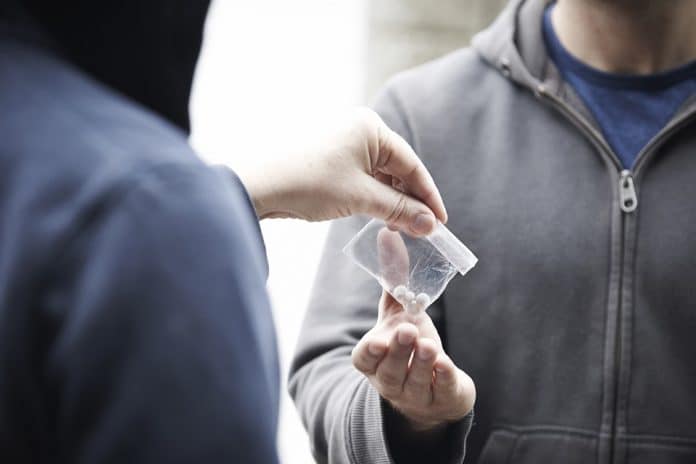That is according to two Green party members from Bournemouth who are currently in discussion with their communities about the best way to tackle the issue.
Cllr Simon Bull, who represents Winton East, and Alasdair Keddie, co-chair of the BCP green party, are proposing de-criminalisation as the way forward.
Both are adamant that the current policy the so called ‘war on drugs’ which, has been in practise since 1971 has completely failed.
Cllr Bull said: “It’s about a change in the way we deal with addiction.
He added: “That we are seeing it as more of a health problem than a criminal justice problem.”
Alasdair Keddie agrees and wants to bring in de-criminalisation.
He also called for better funding for the NHS to deal with the problem.
He explained: “Best practise seems to be coming from Portugal, the Netherlands and Scandinavia, where they dramatically reduced the impact of addiction and drug crime in their communities with progressive politics.”
Others agree including the ‘House of Commons Health and Social Care Committee’ (HCHSCC). They recommend de-criminalisation based on the Portugal model which has proven to be a great success.
In Portugal de-criminalisation has been practised since 2001 with beneficial results. For instance, in the UK there are on average 44.6 overdose deaths per 1000,000 people whereas in Portugal the average is just 3. Although drugs are still illegal users who are caught are given a small fine or referred to treatment, no jail or criminal record.
Despite this success the UK government is adamant that drug taking is a criminal offence reasoning that ‘drug taking is illegal because scientific evidence shows that that drugs are harmful to health.’
Otherwise, no justification or reason was given for criminalisation.
Drug consumption rooms (DCRs) are one idea put forward by Councillor Bull and Alastair Keddie. The idea has had success in in Portugal and some Scandinavian countries. There is also some international evidence that DCRs address problems of public nuisance.
However, when challenged in the house of commons the leader of the house Jacob Reece Mogg said: “It’s not in society’s best interest to allow this progressive approach.
Alasdair Keddie replied: “I think this shows a really shocking disregard for an evidence-based approach.”
Locally the Conservative candidate for police and crime commissioner stated on his Facebook page that he believes in the old methods of criminalisation and tougher prison sentences. However, he was given a chance to justify his position but declined to answer questions citing this article was unbalanced.
It was the same for other Conservative supporters of the war on drugs who all declined to comment or give any justification for their stance.
Mr Keddie explained that: “It is common knowledge that the prison environment is rife with drugs and addiction.” He went on to say that prisons are already overloaded.
Efforts are now being made locally to educate the public. Cllr Bull says he understands people’s anger and fears of drug crime and drug using in areas such as Charminster and Springbourne. However, he insists that the reactionary approach such as tougher prison sentences is not the answer. Now he is trying with other supporters to get the message across and looking at: How do we give people the full picture to understanding addiction?
He stressed that we must find new ways of dealing with the problem and added: “I think it’s about education, it’s about understanding.”
Other solutions were recommended to the UK government from the ‘(HCCSCC).’ They were that they improve existing drug treatment services, create an education package to promote prevention and set up support measures for young people.
They also use Portugal as an example and call for de-criminalisation of drug possession for personal use and to make the issue a civil matter rather than criminal.
Suggesting that the drug problem be moved from the Home Office to the ‘Department of Health and Social Care’.
However, the Government did not except these measures or support them.
There is evidence that tougher measures to deal with drug taking and drug crime are not beneficial. At the opposite extreme to Portugal and the Netherlands are countries like the Philippines and Singapore.
In Singapore despite the law minister K Shammugan supporting capital punishment for the reason it reflects public support, drug smuggling has worsened and so has drug trafficking.
Lawyers for liberty said: “It indicates that Singapore is preparing for an execution binge, in total disregard for international legal norms and decent world opinion.”
There is the death penalty for possession for even having more than 500 grammes of cannabis.
In the Philippines tackling the drug problem is even more extreme. President Dutere has said that he plans to kill every drug dealer in the country.
There are death squads, and it is said tens of thousands of people have been killed including lawyers and critics of the policy.
So far since 2016 there has only been one conviction for the killing of drug suspects.
Despite the popularity of tough measures to deal with drug related crime Alasdair Keddie still has hope. He said: “I am positive for the future.
He went on to say: “I think we face greater challenges now in our communities (and) society that we have at any other time in history.”
Gerald Gilbert
PLEASE SUPPORT US FOR JUST £2 A MONTH







